People
Faculty
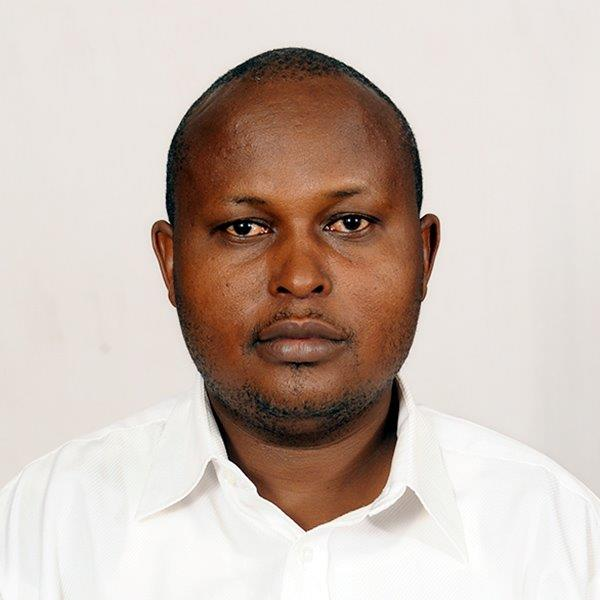
Prof. Samuel M. Mwalili.
Prof. Samuel Mwalili is a distinguished Statistician and faculty member at Jomo Kenyatta University of Agriculture and Technology (JKUAT), specializing in Bayesian statistics, survival analysis, and infectious disease modelling. He earned his Ph.D. in Biostatistics from KU Leuven in Belgium, complemented by master's degrees in both Biostatistics and Applied Statistics. Prof. Mwalili has played a pivotal role in designing and analyzing large-scale public health initiatives, including the Kenya AIDS Indicator Survey and the Kenya Population HIV Impact Assessments. For over a decade, he has served as a technical advisor to the National AIDS Control Council and was part of the National COVID-19 Modelling Technical Committee. He also serves as an Adjunct Professor at Zetech University and is the Director of the Africa Center for Data Analytics and Modelling. His research leadership includes high-impact projects such as MATUMAINI I & II—focusing on the intersection of mental health and HIV—and the GeMVi project addressing COVID-19 misinformation. With over 80 peer-reviewed publications, Prof. Mwalili has made substantial contributions to statistical applications in public health. He is also an active consultant and mentor to governmental and non-governmental bodies, with advanced coding skills in R, Python, and SAS, and is a frequent presenter at international forums in computational sciences.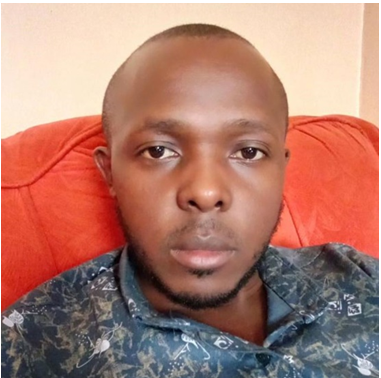
Dr. Amos Kipkorir Langat, Ph.D.
Dr. Amos Kipkorir Langat is a Kenyan statistician and academic with a Ph.D. in Mathematics (Statistics) from PAUSTI and JKUAT. He is noted for his leadership in building capacity among early-career African researchers in computational social science and statistical modeling. Dr. Langat is the Main Organizer of SICSS-ACDAM 2025 and Co-Organizer of SICSS-Nairobi/Mathematica 2024, initiatives promoting advanced computational skills among African scholars. An alumnus of SICSS-Accra 2023, he has expertise in agent-based modeling, natural language processing, and social data analytics. Currently, he lectures at JKUAT and heads the Statistics unit in the Economic Planning Division, County Government of Bomet. He has also taught at Kabarak and Maasai Mara Universities, contributing to curriculum development and postgraduate mentorship. His scholarly work includes over 30 peer-reviewed articles in areas such as Bayesian models, stock prediction, survival analysis, and spatial epidemiology. Dr. Langat has supervised MSc and Ph.D. students, reviewed for international journals, and received prestigious scholarships and research grants. He actively engages in interdisciplinary research on climate change and public health. A member of leading statistical societies, he is fluent in English and French and remains dedicated to advancing statistical literacy and research in Africa.
Dr. Mary Muyonga, Ph.D.
Dr. Mary Muyonga is a demographer with a Ph.D. and MA in Population Studies from the Population Studies and Research Institute, at the University of Nairobi, Kenya. Mary is a co-organiser of the 2025 Summer Institute in Computational Social Studies (SICSS) ACDAM hosted at the Zetech University Technology Campus, in Kenya (https://sicss.io/2025/acdam/). She is an alumnus of SICSS Covenant held in Nigeria in 2022 (https://sicss.io/2022/covenant-university/) and through her personal initiatives, was part of the team that co-organised in 2024, the first SICSS event in East Africa, at the University of Nairobi, Kenya (https://sicss.io/2023/howard-mathematica/). Her research interests include migration, mobility, urbanization and policy linkages in which she has authored several articles and co-authored book chapters. Mary is a firm believer in the SICSS vision of empowering social scientists with the computational tools and skills they need to conduct cutting-edge research at the intersection of social science and data science.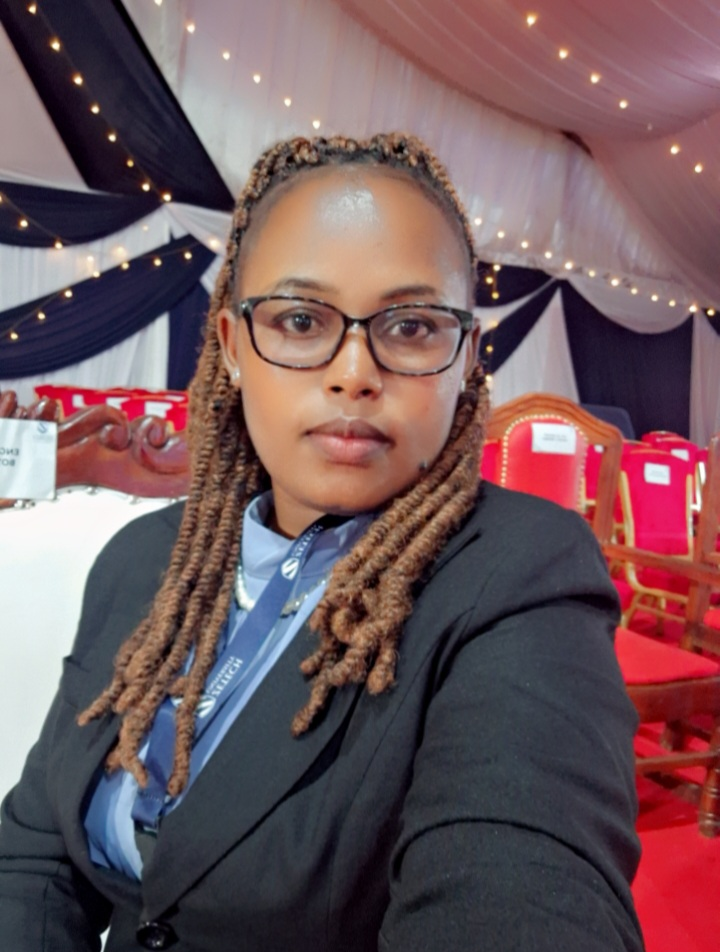
Evalyne Musyoka.
Evalyne Nduvi Musyoka is a faculty member at the Africa Centre for Data Analytics and Modelling (ACDAM) at Zetech University and serves on the organizing team for SICSS-ACDAM. She is currently pursuing a PhD and holds a Master’s degree in Applied Statistics, complemented by a solid background in actuarial sciences. Evalyne has hands-on experience in data analytics, research design, and statistical modeling. Within ACDAM, she contributes significantly to the development of research proposals, data collection and analysis, and engagement with key stakeholders. Her skill set covers both quantitative and qualitative approaches, and she is dedicated to capacity building through student mentorship and organizing academic activities. Evalyne has been involved in high-impact research focusing on mental health, infectious diseases, and public health modeling, in collaboration with institutions like Strathmore University and New York University. Her scholarly work includes publications on malaria, HIV, and cultural practices related to funerals in Kenya.Speakers

Professor Chris Bail.
Chris Bail is Professor of Sociology, Computer Science, Political Science, and Public Policy at Duke University, where he directs the Society-Centred AI Initiative and co-directs the Polarization Lab. He studies how artificial intelligence shapes human behaviour in a range of different settings—and social media platforms. His widely acclaimed 2021 book, Breaking the Social Media Prism, was featured in the New York Times, the New Yorker, and described as “masterful,” by Science Magazine. It also inspired Twitter to implement a major change to its policies designed to counter misinformation and polarization. Chris is passionate about building the field of computational social science. He is the Editor of the Oxford University Press Series in Computational Social Science and the Co-Founder of the Summer Institutes in Computational Social Science, which are free training events designed to introduce junior scholars to the field that are held concurrently in a range of universities around the world each year. He also serves on the Advisory Committee to the National Science Foundation's Social Behavioural and Economic Sciences Directorate, and helped create Duke's Interdisciplinary Data Science Program.
Dr. Emmanuel Olamijuwon Ph.D.
Emmanuel Olamijuwon is a research fellow in the School of Geography and Sustainable Development at the University of St Andrews, where he contributes to research on the impacts of COVID 19 on antimicrobial resistance in East African countries. His background is in Demography, and Population Studies and his core research interest is in social determinants of health particularly, opportunities for improving population health and wellbeing in developing countries. Emmanuel also contributes to methodological research, particularly in the social sciences and has over five years of experience leading the analysis of data from patient level clinical data, large scale survey data, and emerging sources of data such as digital traces. His most recent work combines data from online surveys, Facebook interactions and survey data to illuminate the opportunities for advancing the sexual health of young African adults in the digital age. He also facilitates a wide range of workshops for building local capacity for data analysis and visualization across African countries.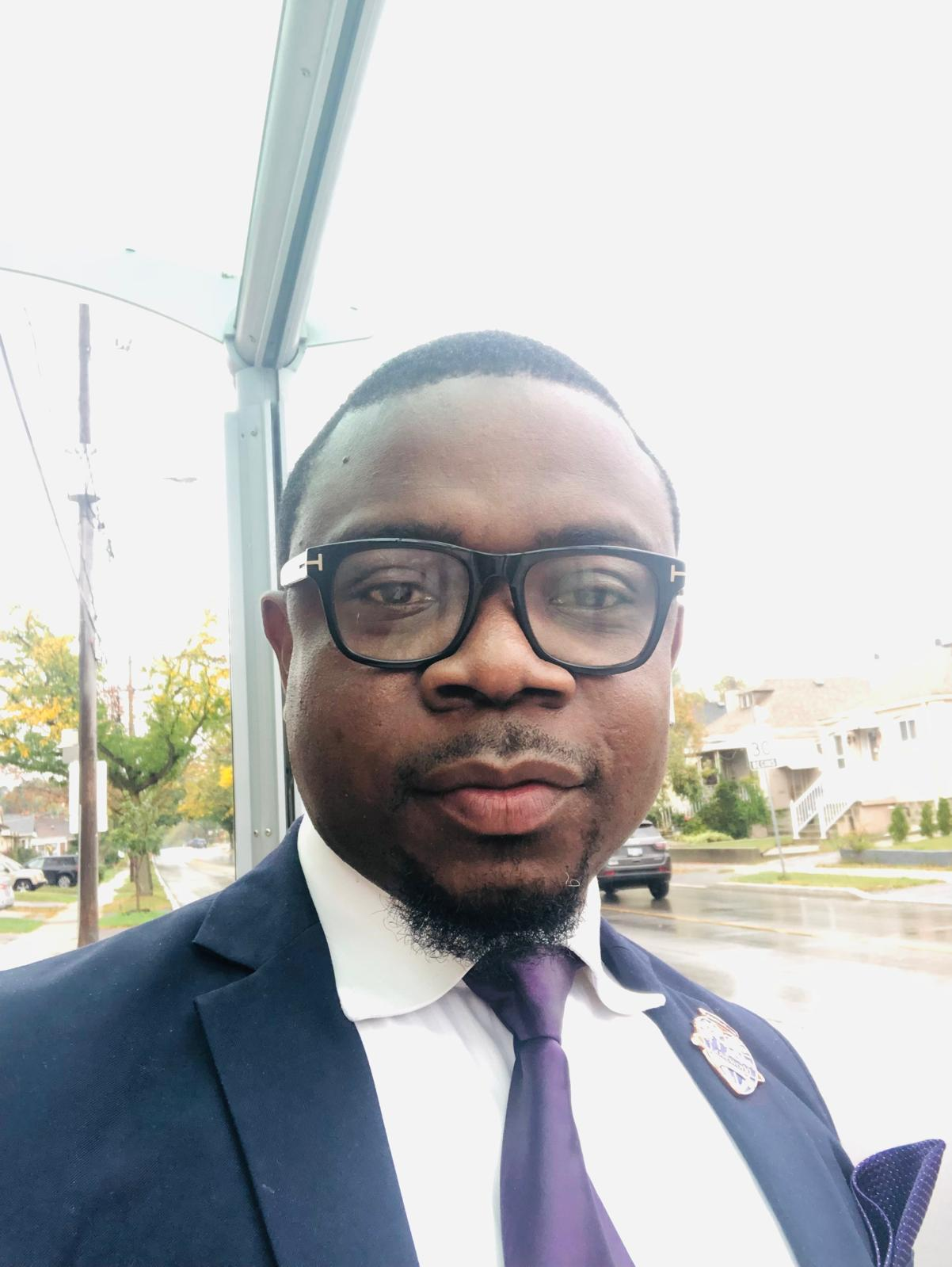
Dr. Blessing Ogbuokiri, Ph.D.
Blessing Ogbuokiri is an Assistant Professor in the Department of Computer Science at Brock University, Canada, and Director of the Responsible and Applied Machine Learning Laboratory (RAML Lab). He was previously a postdoctoral fellow and instructor at York University’s Africa Canada Artificial Intelligence and Data Innovation Consortium Lab in Toronto. He received his Ph.D. in Computer Science from the University of the Witwatersrand, South Africa. His research interests include Responsible AI, machine learning, NLP, and theoretical computing. His research focuses on the intersection of Responsible AI and health ,from building models using machine learning algorithms to predict diseases, to applying NLP techniques for sentiment analysis, text classification, and natural language understanding, to help communities and governments tackle infectious disease outbreaks. A recipient of the Black Scholar Research Grant (2025) and the Google DeepMind AI Award (2018), he collaborates widely across disciplines and served as a Co chair of the Affinity Workshops at NeurIPS 2023. He also organizes the Black in AI Workshop and developed the Responsible AI course at Brock University, reflecting his commitment to inclusive, equitable, and impactful AI systems.Teaching Assistants
Participants

Janet Keru.
I am a Monitoring, Evaluation, and Learning (MEL) specialist with a strong interest in applying computational methods to social science research, particularly in the areas of fertility, reproductive health, and demography in sub-Saharan Africa. My academic and professional work is driven by a commitment to advancing evidence-informed decision-making and enhancing the use of data in program design, implementation, and policy discourse. My experience spans resilience and health sectors, where I have led the development and deployment of data systems that enhance real-time monitoring and adaptive learning. I have supported the development of monitoring and evaluation frameworks for organizations that work with micro-enterprises, deepening my expertise in integrating robust MEL systems across diverse thematic areas. I am drawn to exploring the intersections of computational social science and applied public health research.
Daniel Onyando Ong'ong’a.
I am Daniel Onyando Ong'ong’a, a finance professional and emerging researcher in credit risk management with a strong academic background and practical experience in operations and internal auditing. I hold a Bachelor of Business Administration and Management (Finance Option) from Zetech University and am currently pursuing a Master of Business Administration (MBA) with a specialization in Finance and Investment at the same institution. Professionally, I serve as an Operations Assistant at Zetech University, where I support administrative coordination, streamline operational processes, and assist in resource planning across departments. My responsibilities also include liaising with internal teams to improve delivery service and ensure the smooth running of daily operations. I have further contributed as an Internal Auditor within the university’s Quality Management Systems team, ensuring compliance with ISO 9001:2015 standards and advancing a culture of continuous improvement through audit processes. I am actively engaged in research and currently conducting a study on the effects of credit risk management on the financial performance of deposit-taking SACCOs in Kiambu County, Kenya. This work seeks to highlight actionable strategies for improving SACCO stability and overall financial performance. Guided by integrity, analytical thinking, and strong ethical values, I blend financial expertise with a deep commitment to institutional development. My professional efforts are guided by faith, a spirit of service, and a deep commitment to making a positive impact on society. “My long-term vision is to influence evidence-based policy reforms and promote financial sustainability in the economy and cooperative sectors through innovative research, leadership, and data-driven decision-making.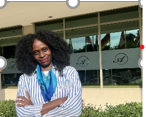
Linet Mutegi.
Linet Mutegi is a development finance expert who is passionate about the growth potential of Africa and how African based institutions can immensely contribute to growth in Africa. She works in Academia and has great passion for teaching and undertaking interdisciplinary research. She holds a Masters’ degree in Development Finance and a bachelors’ degree in Finance and economics (magna cum laude). She hopes to continue undertaking research that positively impacts the society. To date, she has undertaken meaningful research on Gender and Taxation, Climate financing and the Financial gender gap in Africa.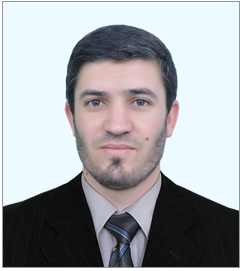
Youssouf Bouzir.
Youssouf Bouzir is a PhD candidate in Statistics at the Pan African University – PAUSTI, hosted at JKUAT, Kenya. His research focuses on survival analysis and disease modeling, with applications in stroke and non-communicable diseases using stratified and extended Cox regression models. He has over seven years of experience as a statistician in Algeria, where he led regional census operations, managed socio-economic indicators, and produced national statistical reports. His applied skills span public health data, machine learning, and remote sensing, including ongoing projects on spatial analysis and plant disease detection using agri-drones and Artificial Intelligence. Youssouf has completed advanced training in biostatistics, HIV modeling, and grant writing, and is actively involved in regional research initiatives. He is passionate about applying data science to public health challenges in Africa and building capacity through collaborative, interdisciplinary work.
